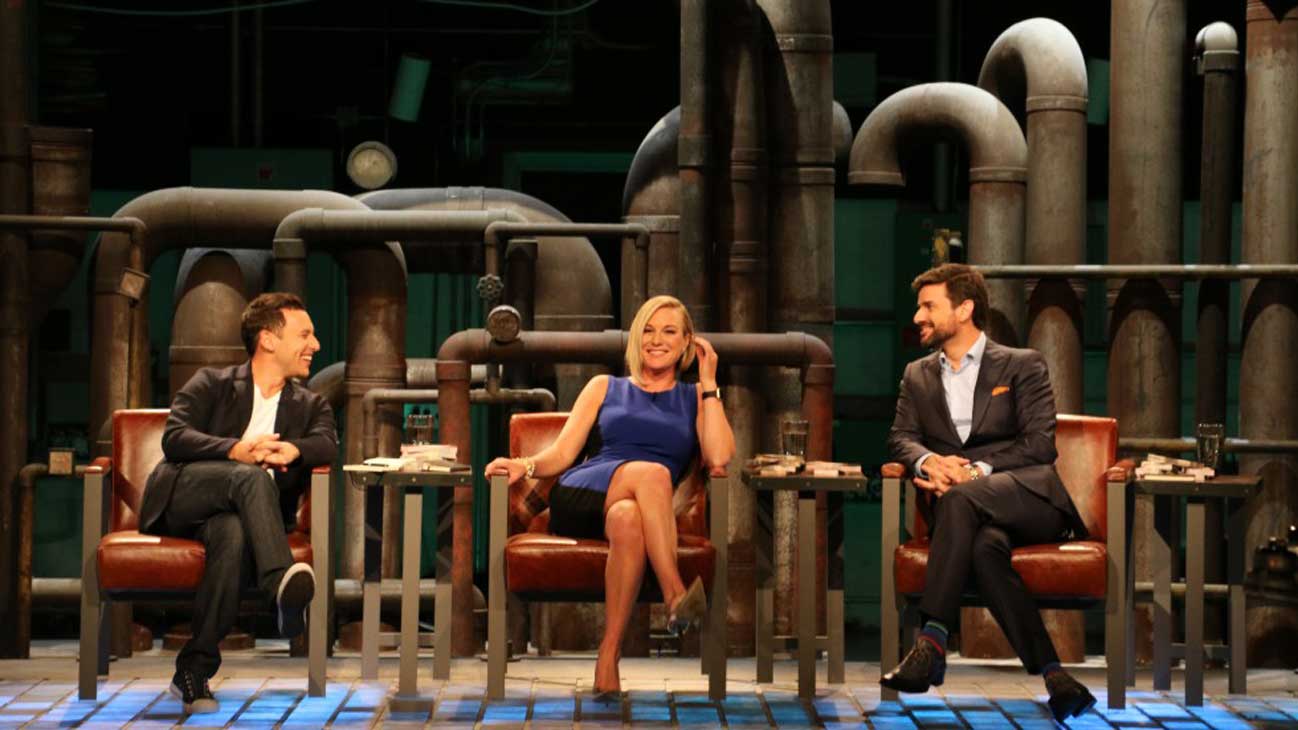Michael Hyatt and Harley Finklestein are the newest two Dragons on Next Gen Den, the 20 episode Dragons’ Den spinoff made for web and mobile. Michael, who became a self-made millionaire by the time he was 25, and Harley, the chief platform officer of Shopify, are ready to help decide on the next generation of Canadian startups:
As they join season one, judge Michael Hyatt, OMX founder Nicole Verkindt and Shopify CPO Harley Finkelstein expressed excitement to be the new dragons for a show that focuses exclusively on early stage startups. While Dragons’ Den tends to focus on more established companies that are working on getting products to market, Next Gen Den only accepts entrepreneurs under 40 that are in the very early stages of developing their idea. The concept could seem tedious to seasoned entrepreneurs, but in fact, the judges indicated the demographic is one of the most exciting parts of being a Next Gen Den dragon.
“The reason that Next Gen Den is so cool is because everyone here is under the age of 40, so these are people that are younger. They’re raising 100k or less, which means that they’re in that startup phase, that means that I can add a lot of value to them,” said Finkelstein. “It’s tough for me to go into an oil and gas company and add a lot of value, but these are people that are just getting things off the ground.”
Verkindt told BetaKit that she enjoys seeing the passion of early stage startups. “I really see myself in a lot of these entrepreneurs, and I can judge whether or not they have the perseverance or some of the qualities that you need to get through a lot of the dark moments,” Verkindt said, adding that the passion — and, sometimes, naivety — of youth is sometimes necessary to build a great product in the long term. “It takes an enormous amount of optimism, and I didn’t know what I knew back then, and it was good for me. I drank my own Kool-Aid.”
As startup life becomes increasingly glorified, the dragons said they appreciate the chance to show how difficult it truly is to run a business when they rip into the ideas of the pitchers. “What I want to do is shorten the time people spend getting to know those falsehoods. The thing you don’t have in a startup is time,” Verkindt said. “Every day you waste burning ash is a day closer to running off the edge.”
Each judge comes from a place of starting their companies from the ground up, and it’s easy to see the very Canadian quality of startup founders that grew their companies here having a desire to give back and collaborate. Finkelstein admitted that he routinely calls Ryan Holmes from Hootsuite, and even Dax Dasilva from Lightspeed (arguably a Shopify competitor) for advice.
“I think the days of winner-takes-all is long gone. The best startups I see today are collaborative, which is different from the way business was done ten years ago where you have trade secrets and nothing is shared,” Finkelstein said. “That’s one of the great parts of the Canadian startup scene. We may not have the technology or startups they have in the US, but what we do have is that we really kind of like each other.”
“I think entrepreneurs need that inspiration, otherwise, what’s the point in going through all that effort and humiliation? In Canada, there’s something about our psyche where we’re too afraid to fail,” Verkindt added. “And I think by bringing this mess up to the forefront and putting it on TV and saying actually, if you don’t have a customer, you’re going to fail, it’s important for people to see and think through.”

